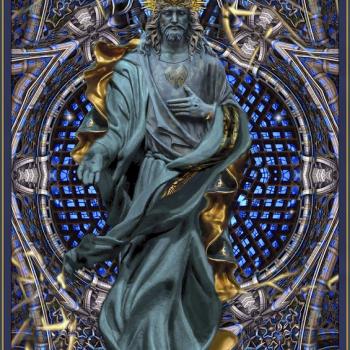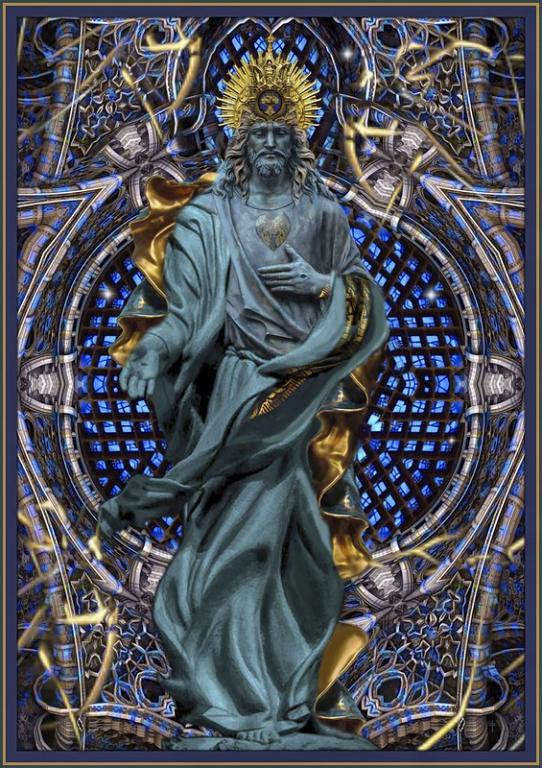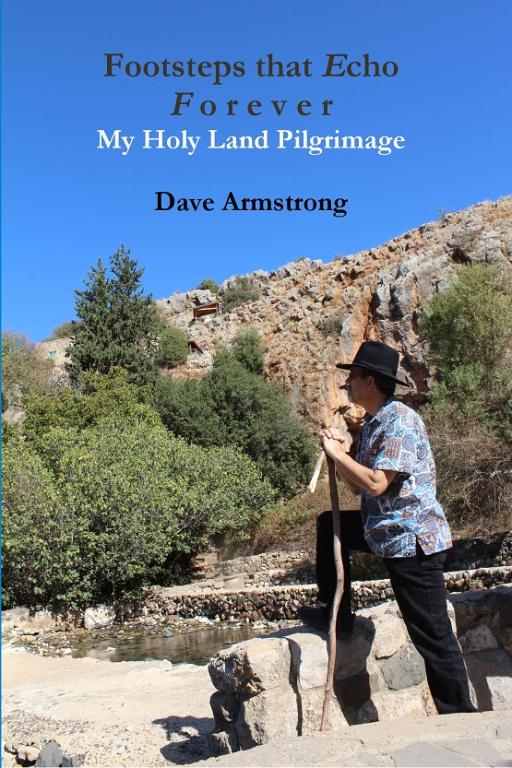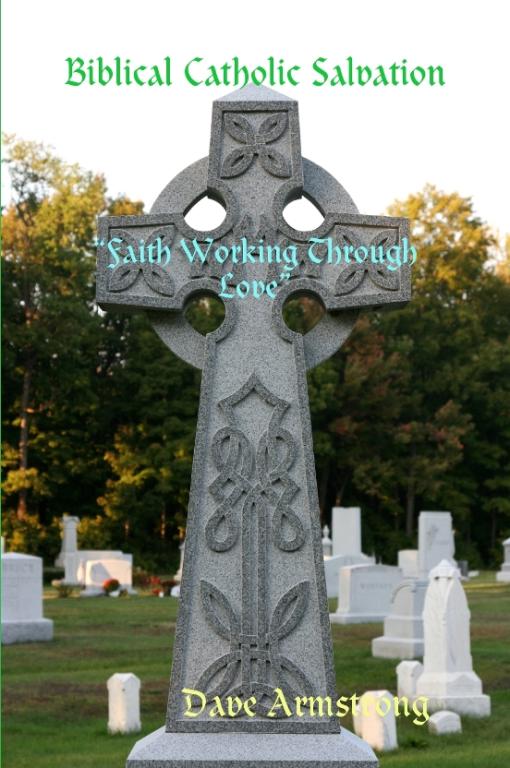Featuring Confirmatory Historical Tidbits About the Magi and Herod the Great

Atheist anti-theist Jonathan M. S. Pearce’s “About” page states: “Pearce is a philosopher, author, blogger, public speaker and teacher from Hampshire in the UK. He specialises in philosophy of religion, but likes to turn his hand to science, psychology, politics and anything involved in investigating reality.” His words will be in blue.
*****
I am replying to Jonathan’s article, “Mental Contortions Required of Christians to Believe the Nativity Accounts” (12-23-19). Although he likely has made each argument in his book on the Nativity and elsewhere, nevertheless, this particular article is in the form of a “gish gallop”: an unsavory argumentative technique or strategy often decried by atheists. Wikipedia explains:
The Gish gallop is a term for an eristic technique in which a debater attempts to overwhelm an opponent by excessive number of arguments, without regard for the accuracy or strength of those arguments. The term was coined by Eugenie Scott; . . . It is similar to a methodology used in formal debate called spreading. . . .
During a Gish gallop, a debater confronts an opponent with a rapid series of many specious arguments, half-truths, and misrepresentations in a short space of time, which makes it impossible for the opponent to refute all of them within the format of a formal debate. In practice, each point raised by the “Gish galloper” takes considerably more time to refute or fact-check than it did to state in the first place.
This is not a formal debate, with timing and structure, etc., so I can take all the time I like to refute each point, but the technique itself remains dubious. It was disparaged on Jonathan’s blog by fellow blogger there, Aaron Adair (3-8-13):
. . . putting out a large number of statements in quick succession that his opponent almost certainly could not refute in the time allotted. This has become known as the Gish Gallop, and it has been noted as a technique used by others in a debate: throw out many arguments, your opponents will be able to deal with only so many and not adequately, and you can claim one of your un-refuted arguments stands and that means you are right.
So — again — this is not a formal debate, and Jonathan has written about this stuff elsewhere and can theoretically defend any of those arguments against criticism (I’m not denying that he has done so or that he would be willing to do so). But this paper of his uses the technique. If a Christian did this in any major atheist forum we would be laughed to scorn and mocked (we always are anyway in those places).
I should note, however, that the delightful, informative RationalWiki page, “Gish Gallop” by no means confines the tactic to oral, formal debate. It refers to readers and written exchanges several times, and even includes an entire section called “in written debate”.
Jonathan throws out no less than 28 objections to the biblical Nativity narratives in Matthew and Luke: most only one-sentence long. I’ll play along and make (mostly) short replies (as my time is not unlimited) or provide a relevant link: as I have written quite a bit about Christmas controversies with atheists as well.
As I write, there are still three of my recent papers in reply to Jonathan that he has chosen thus far not to reply to:
*
Jesus the “Nazarene” Redux (vs. Jonathan M. S. Pearce) [12-19-20]
I think there are several older critiques of mine from 2017 that he has not replied to, either. I have offered ten critiques of his material altogether, not including this one. I hope he has not now decided to take the “flee for the hills” / “hear no evil” approach of his fellow anti-theist atheists Dr. David Madison (whom I’ve refuted 44 times with no reply), Bob Seidensticker (69 times without any peep back), and John Loftus (10 critiques of his “magnum opus” book, which he has utterly ignored). If he decides to go this route, I will continue critiquing his material, as I desire. No skin off my back. His choice . . .
*
In my book,The Nativity: A Critical Examination, I think I give ample evidence that allows one to conclude that the historicity of the nativity accounts is sorely and surely challenged. All of the aspects and claims, that is. There are problems, for sure, if one accepts that some claims are false but others are true. But the simple fact of the matter is that all of the claims are highly questionable.
*
Here are the hoops that a Christian must jump through. They are flaming hoops, and the Christian can do nothing to avoid being burnt, it seems.
[in my replies below, I have added numbers to his gish gallop claims. His original words didn’t have the numbers; it had bullet points]
In order for the Christian who believes that both accounts are factually true to uphold that faithful decree, the following steps must take place. The believer must:
1) Special plead that the virgin birth motif is actually true for Christianity but is false for all other religions and myths that claim similarly.
This is true, but it is neither special pleading nor, I contend, controversial at all. Exclusive claims that logically rule out other competing contradictory claims are made in all belief-systems. It’s foolish and irrelevant to single out Christianity for doing this, as if it is objectionable in and of itself. For example, the current consensus in scientific cosmology / astronomy is that the universe had a beginning and that it is not eternal or without a beginning. There were scientists who resisted this for decades (even Einstein did for a time), until the Big Bang Theory became consensus in the 1960s (or 70s at the latest).
There are atheists who resist it today, and argue for a cyclical universe or “multiverse” (minus any compelling evidence). And there are various religious beliefs as to how the universe began. Of course, the Christian view is completely harmonious with the Big Bang. The universe began out of nothing, or ex nihilo, as the old theological phrase had it. Current science and Christianity teach this (though we add God in there as the cause of the Big Bang and science precludes that in its current methodological naturalism). So much the worse for those who disagree (as far as the Big Bang and the beginning of the universe). They’re wrong.
2) Deny that “virgin” is a mistranslation.
It’s not. I have dealt with this issue twice: both in response to Jonathan. He hasn’t replied to the second paper yet:
Reply to Atheist Jonathan MS Pearce: “Mistranslation” of “Virgin”? (Isaiah 7:14) (with Glenn Miller) [7-26-17]
Dual Fulfillment of Prophecy & the Virgin Birth (vs. JMS Pearce) [12-18-20]
3) Give a plausible explanation of from whence the male genome of Jesus came from and how this allowed him to be “fully man”.
It was (obviously, in Christian belief) a miraculous intervention of God. It can’t be explained naturally, by the nature of the case. Now, of course, for an atheist who denies that both God and miracles exist, it’ll be implausible (what else is new?). But that doesn’t prove that it’s untrue. If one offers rational evidences for God’s existence and also of miracles, then it’s entirely possible and able to be believed in by rational thinkers, as an actual event, as God’s revelation claims.
4) Be able to render the two genealogies fully coherent without the explanation being contrived or ad hoc.
I did that, 3 1/2 years ago:
Reply to Atheist Jonathan MS Pearce: “Contradictory” Genealogies of Christ? [7-27-17]
Atheists are fond of saying that everything we offer by way of evidence is “ridiculous” (on a kind day), or “ad hoc” or “implausible” or “special pleading.” And they do because of what I mentioned above: they deny the necessary presuppositions of God’s existence and (flowing from that) therefore the possibility and/or factuality of miracles and the supernatural. Once having denied the possibility or actuality of those two things, then of course they will immediately dismiss all Christian explanations as ad hoc or “implausible” etc.
It’s a way of trying to look impressive without offering any further arguments. But they have to deny such things, according to their atheist dogmas that literally disallow them from believing in anything that is inconsistent with atheism, or even to entertain a theoretical possibility.
5) Believe that the genealogies are bona fide and not just tools to try to prove Jesus’ Davidic and Messianic prophecy-fulfilling heritage.
This cynical sentiment simply flows from atheist hostility and bigotry against the Bible, Bible-writers, and Christians. Christians aren’t obliged to factor that into any of our apologetics or beliefs. We take the Bible at face value, just as we would any other such literature, rather than starting out inveterately hostile to it. That’s not an objective, scholarly approach. Besides, the Bible has had a mountain of evidence from history and archaeology that shows again and again that it is trustworthy in the details that it provides; therefore, can be trusted as a source. Those sots of independent verifications bolster our faith that the Bible is God’s revelation to humankind.
6) Be able to explain the inconsistency of the two accounts in contradicting each other as to where Joseph lived before the birth (without the explanation being contrived or ad hoc).
See:
7) Believe that a client kingdom under Herod could and would order a census under Roman diktat. This would be the only time in history this would have happened.
8) Find it plausible that people would return, and find precedent for other occurrences of people returning, to their ancestral homes for a census (at an arbitrary number of generations before: 41).
9) Give a probable explanation as to how a Galilean man was needed at a census in another judicial area.
10) Give a plausible reason as to why Mary was required at the census (by the censors or by Joseph).
11) Give a plausible explanation as to why Mary would make that 80 mile journey on donkey or on foot whilst heavily pregnant, and why Joseph would be happy to let her do that.
See:
The Census, Jesus’ Birth in Bethlehem, & History [2-3-11]
*
Reply to Atheist Jonathan MS Pearce: Herod’s Death & Alleged “Contradictions” (with Jimmy Akin) [7-25-17]
12) Believe that Joseph could afford to take anywhere from a month to two years off work.
This is a foolish query. If necessary, he could save up for “off” months just as virtually all farmers and teachers do. Is that so inconceivable? Or, as a carpenter and likely stone mason as well, he had a skill that was “portable”: so that he could pick up odd jobs while traveling. This is the kind of stuff which vanishes as a supposed “difficulty” with just a moment or two of unbiased, objective thought.
13) Believe that, despite archaeological evidence, Nazareth existed as a proper settlement at the time of Jesus’ birth.
I don’t know what “archaeological evidence” Jonathan is referring to, but there is more than enough to establish the existence of Nazareth as a town during the time of Jesus’ birth and infancy. I already recounted it in a recent reply to Jonathan:
[T]he archaeological investigation revealed that in Nazareth itself, in the middle of the first century AD, anti-Roman rebels created a sizeable network of underground hiding places and tunnels underneath the town – big enough to shelter at least 100 people. . . .
The new archaeological investigation – the largest ever carried out into Roman period Nazareth – has revealed that Jesus’s hometown is likely to have been considerably bigger than previously thought. It probably had a population of up to 1,000 (rather than just being a small-to-medium sized village of 100-500, as previously thought).
“Our new investigation has transformed archaeological knowledge of Roman Nazareth,” said Dr Dark, who has just published the results of his research in a new book Roman-Period and Byzantine Nazareth and its Hinterland. . . .
The newly emerging picture of Roman-period Nazareth as a place of substantial religiosity does, however, resonate not only with the emergence of its most famous son, Jesus, but also with the fact that, in the mid-first or second century, it was chosen as the official residence of one of the high priests of the by-then-destroyed Temple in Jerusalem, when all 24 of those Jewish religious leaders were driven into exile in Galilee. (“New archaeological evidence from Nazareth reveals religious and political environment in era of Jesus”, David Keys, Independent, 4-17-20)
See also: “Did First-Century Nazareth Exist?” (Bryan Windle, Bible Archaeology Report, 8-9-18; cf. several related articles from a Google search). Did it exist before Jesus’ time? It looks like it did:
The Franciscan priest Bellarmino Bagatti, “Director of Christian Archaeology”, carried out extensive excavation of this “Venerated Area” from 1955 to 1965. Fr. Bagatti uncovered pottery dating from the Middle Bronze Age (2200 to 1500 BC) and ceramics, silos and grinding mills from the Iron Age (1500 to 586 BC) which indicated substantial settlement in the Nazareth basin at that time. (Wikipedia, “Nazareth”)
That’s science. Jonathan has to grapple with the actual findings and not just sit back and deny that there are any such. As it is, that was from one of my reply-papers that he has not found time to reply to these past 19 days (while replying to many others). Maybe he will in due course, since it was during the holidays.
14) Believe that the prophecies referred to Nazareth and not something else.
They do, but they were not from the Old Testament. See:
*
15) Believe that the magi were not simply a theological tool derived from the Book of Daniel.
This is a variation of the undue cynicism which I skewered in my reply to #5 above. As such, it can be dismissed as a non sequitur. That said (in principled protest), the factuality of these accounts is completely plausible based on what we know from secular historiography: that there was a group called the Magi, who were were originally a Median (northwest Persian) tribe (Herodotus [Hist.] i.101). They performed priestly functions, perhaps due to Zoroaster possibly having belonged to the tribe (or belief that he did), and studied astronomy and astrology: in part likely learned from Babylon.
Historians note that in Yemen, for example, there were kings who adhered to Judaism from about 120 B.C. to the sixth century A.D. Possibly, then, the wise men were Jewish or at least were strongly influenced by Jews.
If Jonathan or those who think like he does don’t want to take my word for it, then perhaps they will be persuaded by the Encyclopaedia Britannica:
Magus, plural Magi, member of an ancient Persian clan specializing in cultic activities. The name is the Latinized form of magoi (e.g., in Herodotus 1:101), the ancient Greek transliteration of the Iranian original. From it the word magic is derived.
It is disputed whether the magi were from the beginning followers of Zoroaster and his first propagandists. They do not appear as such in the trilingual inscription of Bīsitūn, in which Darius the Great describes his speedy and final triumph over the magi who had revolted against his rule (522 BC). Rather it appears that they constituted a priesthood serving several religions. The magi were a priestly caste during the Seleucid [312-63 BC], Parthian [247 BC-224 AD], and Sāsānian [224-651 AD] periods; later parts of the Avesta, such as the ritualistic sections of the Vidēvdāt (Vendidad), probably derive from them. From the 1st century AD onward the word in its Syriac form (magusai) was applied to magicians and soothsayers, chiefly from Babylonia, with a reputation for the most varied forms of wisdom. As long as the Persian empire lasted there was always a distinction between the Persian magi, who were credited with profound and extraordinary religious knowledge, and the Babylonian magi, who were often considered to be outright imposters. (“Magus: Persian priesthood”)
A visit by such men to the west, based on astrological-type beliefs and star-gazing, using the route through the Fertile Crescent around the Arabian and Syrian deserts that has been taken for many centuries by the Royal Road and the King’s Highway and the Silk Road (as I have recently written about, not in reply to Jonathan) is completely plausible. There is no good reason to doubt the biblical account. Nothing in it (rightly understood in light of the many biblical genres) rings immediately untrue or questionable. Jonathan mentions the book of Daniel. Yeah: that’s accurate, too, as we know that the Magi were in Babylonia at that time as well, as the cited encyclopedia entry above alludes to.
16) Believe that Herod (and his scribes and priests) was not acting entirely out of character and implausibly in not knowing the prophecies predicting Jesus, and not accompanying the magi three hours down the road.
The second thing we can only speculate about, but if the Bible shows itself trustworthy again and again in a host of ways: confirmed by secular archaeology and historiography, then we can trust it regarding such an obscure item that it casually refers to. As to the first question: is it impossible that Herod might not know the prophecy of Micah 5:2? Not at all. He was a very secularized Jew, as a Jewish scholarly article noted:
In his recent book The Herodian Dynasty, Nikos Kokkinos portrayed Herod as Hellenized Phoenician whose Jewishness was superficial, resulting from the conversion of Idumaea by John Hyrcanus . . . Herod’s departure form the Jewish ethos is manifested by his own deeds contrary to Jewish laws and customs as well as his strong cultural inclination toward Rome. . . .
This impression is nurtured mainly by Josephus’s accounts. (“Herod’s Jewish Ideology Facing Romanization: On Intermarriage, Ritual Baths, and Speeches”, Eyal Regev, The Jewish Quarterly Review, Vol. 100, No. 2, Spring 2010)
19) Believe that a star could lead some magi from the East to Jerusalem and then to Bethlehem where it rested over an individual house and not be noted by anyone else in the world.
*
I delved into all this in great detail in the last three weeks:
Star of Bethlehem, Astronomy, Wise Men, & Josephus (Amazing Astronomically Verified Data in Relation to the Journey of the Wise Men & Jesus’ Birth & Infancy) [12-14-20]
Star of Bethlehem: Refuting Silly Atheist Objections [12-26-20]
Route Taken by the Magi: Educated Guess [12-28-20]
Star of Bethlehem: More Silly Atheist “Objections” [12-29-20]
How Do We Understand the Star of Bethlehem Coming to “Rest Over the Place Where the Child Was”? [Facebook, 12-29-20]
20) Believe that the shepherds were not merely midrashic and theological tools used by Luke.
Yet more higher critical hogwash. See my replies to #5, #15, and #18 above. There is no solid reason to doubt this story, either. I recently wrote about one related question: the time of the year with regard to shepherding sheep near Bethlehem:
21) Believe that there is (and provide it) a reasonable explanation as to why each Gospel provides different first witnesses (shepherds and magi) without any mention of the other witnesses.
Because I know of no such literary requirement (let alone logical or moral obligation) for each narrator of roughly the same story to include every and all details that the other narrators may have included. The fact that they emphasize different things and omit details that the others include is strong confirmation of authenticity from all four sources.
But there is a factual error here, too: Jesus was a toddler when the wise men visited (based on the Greek word used to describe Him). This didn’t occur at the same time as the birth and the visit of the shepherds. This is what Christians believe, based on the biblical text (which is one reason why our feast of epiphany is on a different day from Christmas: usually on or around January 6th).
Therefore, the wise men are not possible “first witnesses” and there is no conflict in the first place. The text doesn’t claim they were the first to visit Jesus. It’s simply another manufactured pseudo-“contradiction” from our friends, the atheists, who seem to make it their life’s goal to violate (or not comprehend?) elementary-level logic as often as they can.
22) Believe that, despite an absence of evidence and the realisation that it is clearly a remodelling of an Old Testament narrative, the Massacre of the Innocents actually happened.
See my replies to #5, #15, #18, and #20 above.
23) Believe that Herod would care enough about his rule long after his death to chase after a baby and murder many other innocent babies, a notion that runs contrary to evidence.
It’s perfectly in character for a tyrant who murdered two possible royal rivals (see the citation below). Herod was no choirboy. According to one secular source:
The first 12 years of Herod’s reign (37-25 BCE) saw the consolidation of his power. He built fortifications in Jerusalem, Samaria and at Masada, silenced all opposition to his rule and eliminated his Hasmonean rivals, Aristobulus and Hyrcanus II, the brother and the grandfather of his second wife, Mariamme. The former drowned in an arranged swimming pool accident and the latter was strangled.
Our chief informant is the Jewish historian Flavius Josephus (37-c.100CE), who devoted most of Book I of his Jewish War and Books XIV to XVII of Jewish Antiquities to the life and times of Herod. Josephus uses as his main source the universal history of Nicolaus of Damascus, the well-informed teacher, adviser and ambassador of Herod.
24) Believe that God would allow other innocent babies to die as a result of the birth of Jesus.
This is not the place to enter into a full-fledged Christian explanation of the problem of evil. God grants free will. Otherwise we would be robots (and then this dialogue wouldn’t exist, because in that scenario God simply wouldn’t allow dumbfounded, groundless atheist opinions, and Jonathan would be a Christian because God willed and predestined it to be so, wholly apart from Jonathan’s free will which, of course, wouldn’t exist).
Instead, it happened out of human irresponsibility and a head-in-the-sand mentality (President Kennedy wrote about this in his book, Why England Slept). And then after it did, one of the most popular arguments from atheists was: “why did God allow the Holocaust?” He allowed it, because He doesn’t control us like puppets, but it’s not His fault. It’s the fault of human beings who could have prevented it, but were too naive and stupid and negligent to do so. And so, when human beings fail miserably, what do they do? Blame other human beings or blame God . . . That’s the fool’s way out every time.
25) Believe that the Flight to and from Egypt was not just a remodelling of an Old Testament narrative in order to give Jesus theological gravitas.
*
26) Give a plausible explanation as to why the two accounts contradict each other so obviously as to where Jesus and family went after his birth.
Did that:
The Census, Jesus’ Birth in Bethlehem, & History [2-3-11]
*
*
28) Provide a plausible explanation as to why Jesus’ own family did not think he was the Messiah, given the events of the nativity accounts.
There is no reason to believe that Mary and Joseph didn’t know this all along. As for His extended family, see:
Jesus’ “Brothers” Were “Unbelievers”? (Jason also claims that “Mary believed in Jesus,” but wavered, and had a “sort of inconsistent faith”) (vs. Jason Engwer) [5-27-20]
*
I’ve done so, and so I can rationally hold that belief (i.e., by the criterion of Jonathan’s internally contradictory and incoherent standards).
I would contest that it is rationally possible to ever hold such a belief.
I would contend that my (and many others’) replies to his objections render them null and void and of no impact or import. If Jonathan disagrees, then let him counter-reply.
. . . it has been shown that every single claim can be soundly doubted under critical examination . . .
Hogwash!


















